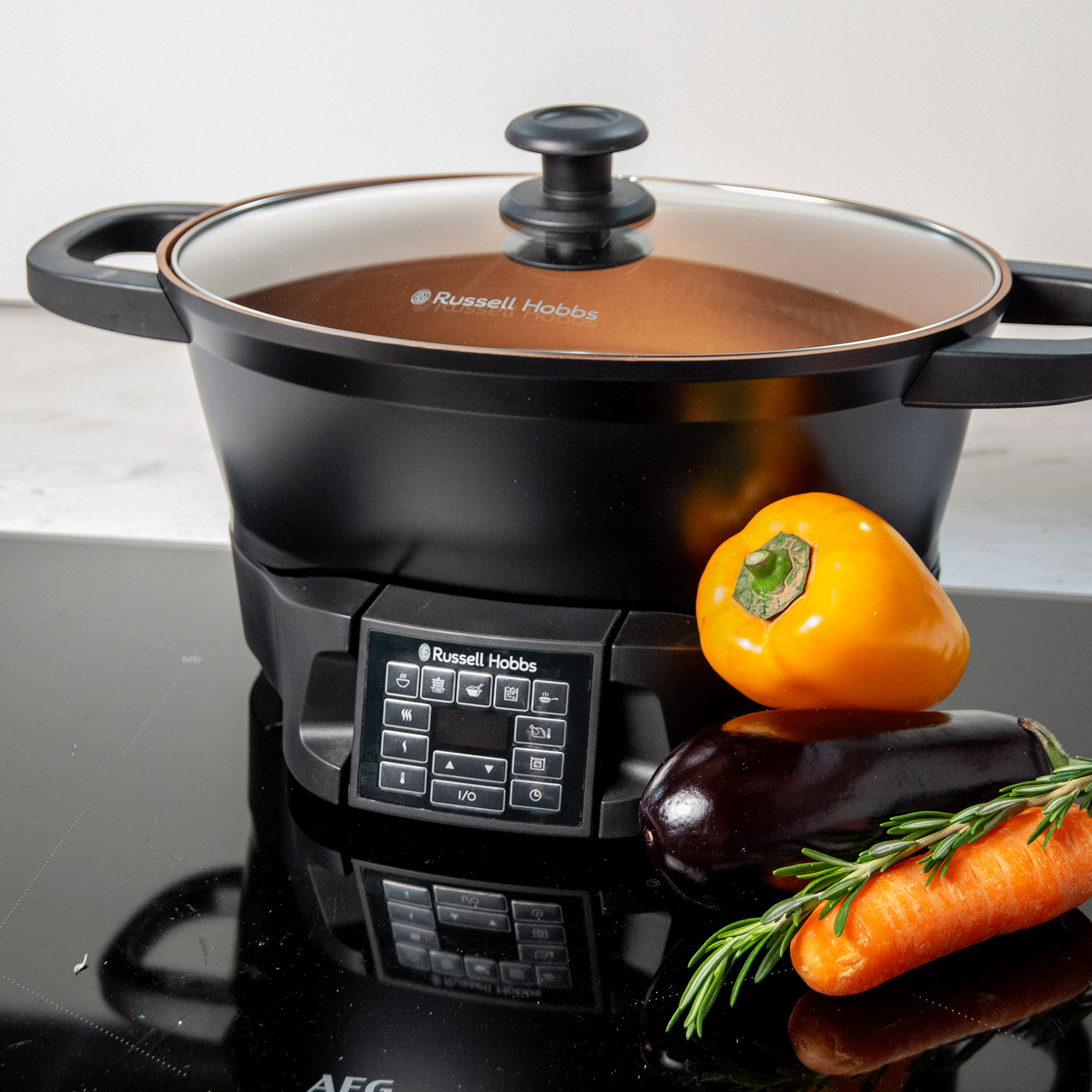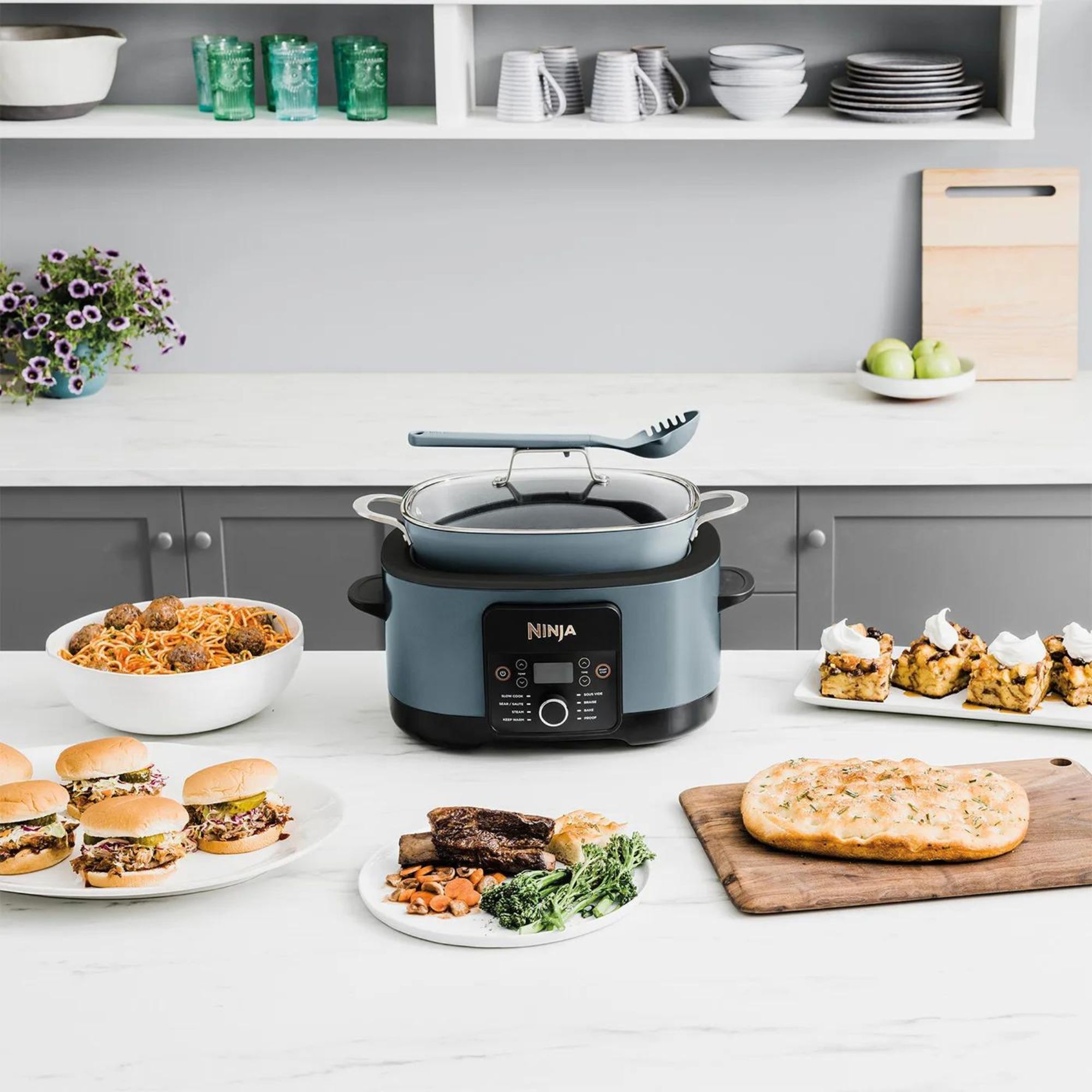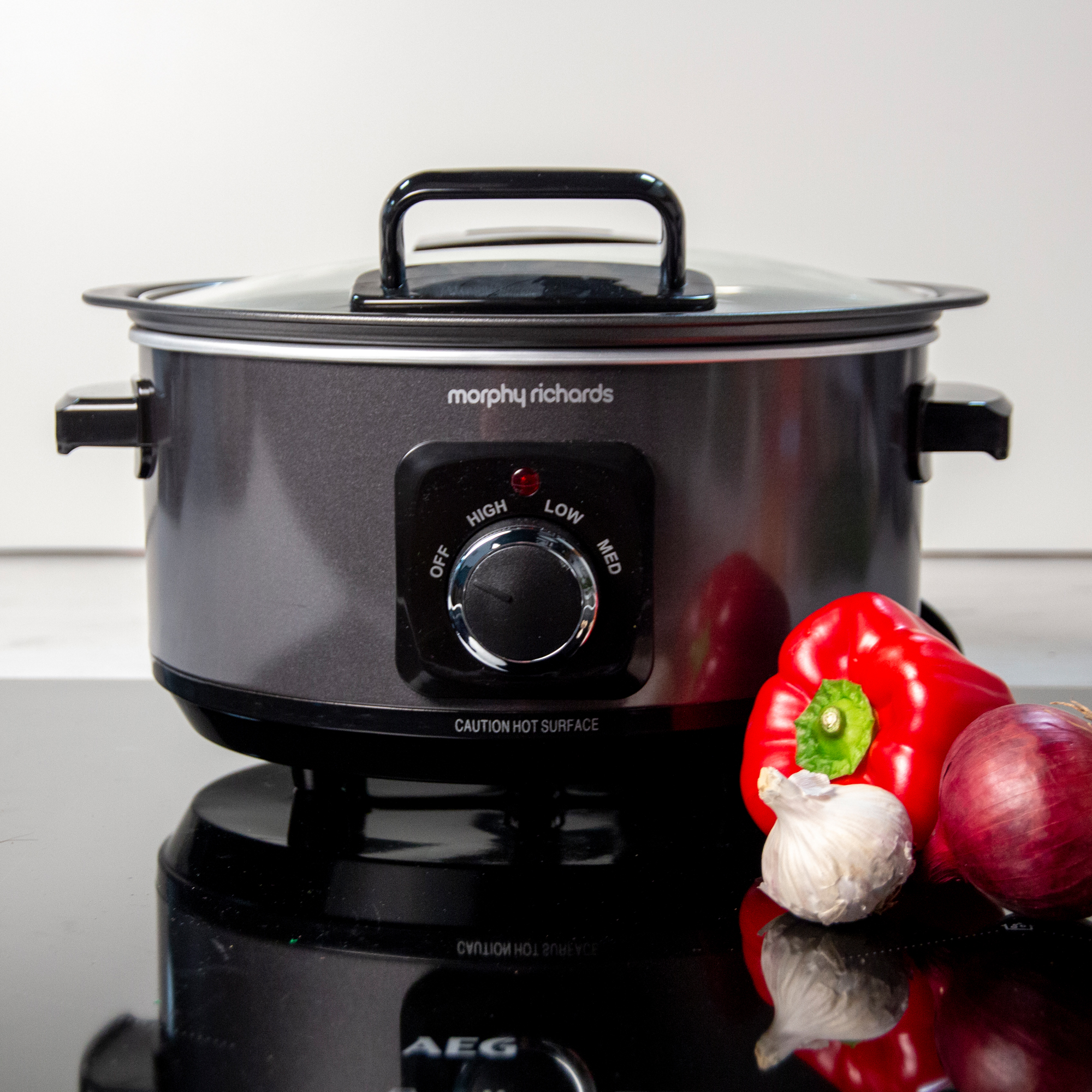
When adding a new appliance to your kitchen, knowing how much it will cost to run is something you need to consider. And if you’re looking to take advantage of the slow and low qualities of a slow cooker, we’ve got all the info you need on how much electricity a slow cooker uses.
The best slow cookers can revolutionise your cooking adventures. Perfect for those who don’t have time to whip up a meal after work or those looking to get into the batch-cooking game, slow cookers work on the notion of cooking food at a lower temperature for a longer amount of time. Because of this, many people assume that a slow cooker is expensive to run.
But if you’re looking to save energy at home, you’ll be happy to learn that slow cookers are cheaper than you’d think. Not only that, but you can save even more money when using a slow cooker by employing a few simple tips and tricks.
How much electricity does a slow cooker use?
‘A slow cooker is an electrical appliance which cooks food at a lower temperature than other cooking methods. It features a removable inner pot, which is heated by an element in the base, and an all-important lid that keeps all the heat and steam inside during cooking,’ explains a representative from Lakeland.
And at Ideal Home, we’re huge fans of the slow cooker. What was once considered an old-fashioned kitchen appliance has since seen a resurgence in popularity thanks to big brands releasing new iterations of this classic cooker.

From the innovative Ninja Foodi Possible 8-in-1 slow cooker to the 5-star-rated Crockpot Lift and Serve slow cooker, these modern appliances make cooking everything from curries to soups a breeze. But the perks don’t end there.
Hannah Hamer, Assistant Marketing Manager at Russell Hobbs, explains, ‘Slow cookers are among the kitchen’s most energy-efficient appliances due to its concentrated space, allowing you to cook up a variety of different dishes from stews to curries and even desserts in minimal time with minimal preparation.’
How much does it cost to run a slow cooker?
If you were wondering what the cheapest appliance to run is, you might be interested to know that the humble slow cooker takes the crown as the cheapest of them all - costing around 4p per hour to run.
Even if you leave your slow cooker on for eight hours while you’re at work, you’re only looking at a 20p hike in your energy bill per day, based on a slow cooker with a low wattage. This is incredibly cheap when compared to an oven, which would set you back almost £2 if you were to leave it on for the same amount of time. In fact, a slow cooker uses about the same energy as a lightbulb.

This is because slow cookers generally run on a lower wattage, which means that they require less energy to run than other high-wattage appliances that can cook your food quicker.
Of course, the cost to run a slow cooker does depend on the slow cooker you buy. To work out exactly how much electricity a slow cooker uses, you need to know how much you pay per kWh, which you can find on your energy bill.
Based on the current energy price cap, which is in place from 1 April 2024 until 31 June 2024, the highest price you could pay per pence/kWh is 25p.
An example 100 W slow cooker used on average for eight hours a day will cost roughly £1.40 per week, £5.60 per month, and £67.20 per year.
An example 160 W slow cooker used on average for eight hours a day will cost roughly £2.24 per week, £8.96 per month, and £107.52 per year.
An example 220 W slow cooker used on average for eight hours a day will cost roughly £3.08 per week, £12.32 per month, and £147.84.
While this is fairly similar to how much it costs to run an air fryer, it’s important to note that these two appliances are very different.
The best air fryers can cook your food in record time and may only need to be used for as little as ten minutes every day. So, using a slow cooker for eight hours for a similar price is pretty impressive on a slow cooker’s part.

How to save money when using a slow cooker
Osman Ozturk, Senior Director, New Product Innovation at SharkNinja says: 'Slow cookers are becoming ever increasingly popular as an alternative way to prepare tasty meals without relying on an oven. With minimal food prep required, and with no pre-heat, they can offer a time-saving solution in the kitchen for those busy households.'
And while cooking your food slow and low is a surefire way to keep your energy bills down, there are ways to save even more money when using a slow cooker.
- Buy a slow cooker with a low wattage: Ultimately, the lower the wattage of an appliance, the lower your energy bills will be. And while buying a slow cooker with a lower wattage will save you extra cash, it’s important to note that a lower wattage doesn’t always mean smaller. So, always make sure you check the specs of a slow cooker before buying.
- Don’t overfill it: When making a curry for the whole family, you may feel inclined to fill the pot to the brim with chicken and sauce. However, this could cause your energy bills to skyrocket. Slow cookers work best when filled to around ⅔ of their capacity, which is something you need to bear in mind before buying. For example, if you buy a slow cooker with a 3.5L capacity, you should only fill it to around 2L to keep it as energy efficient as possible.
- Opt for a glass lid: A representative from Lakeland says, ‘Don’t lift the lid! Taking the lid off during cooking releases all the precious heat and steam inside, a big no-no as it means your food will dry out and take longer to cook.’ Because of this, opting for a slow cooker with a glass lid will allow you to check the contents of the appliance without losing any heat in the process.
- Make the most of a timer: Most modern slow cookers come with a timer that will automatically turn the appliance off after a certain length of time. By using this timer, you can ensure that you’re only using the appliance (and electricity) for as long as you need - and no more than that.
- Start batch cooking: If you’re looking to save energy while cooking, batch cooking is the way to go. By doing this, you can cook up a week’s worth of food in your slow cooker in just eight hours, and then you won’t have to turn your slow cooker on again. All you need to do is heat it up in your best microwave when you get peckish.
FAQs
Do slow cookers use a lot of electricity?
In the grand scheme of things, no, they don’t. As slow cookers are generally low wattage, they require a fraction of the amount of energy needed to run an oven. In fact, it’s generally considered to be the cheapest kitchen appliance to run - even if you were to use it for eight hours a day.
There are ways to reduce the energy usage even further, as well. Batch cooking and using ⅔ of the slow cooker’s capacity will help you save even more money when using this handy kitchen appliance.
How much does it cost to run a slow cooker for 8 hours UK?
At the time of writing, and in accordance with the current energy price cap, the cheapest slow cooker will cost you around 2.5p to run for an hour. For eight hours, this will set you back 20p.
This makes it one of the cheapest kitchen appliances to run, but this does ultimately depend on the amount you pay for energy and the slow cooker you choose to buy. A slow cooker with a higher wattage will cost you more - especially if the energy price cap rises again.
If you need a sign to buy a new slow cooker, here it is.







